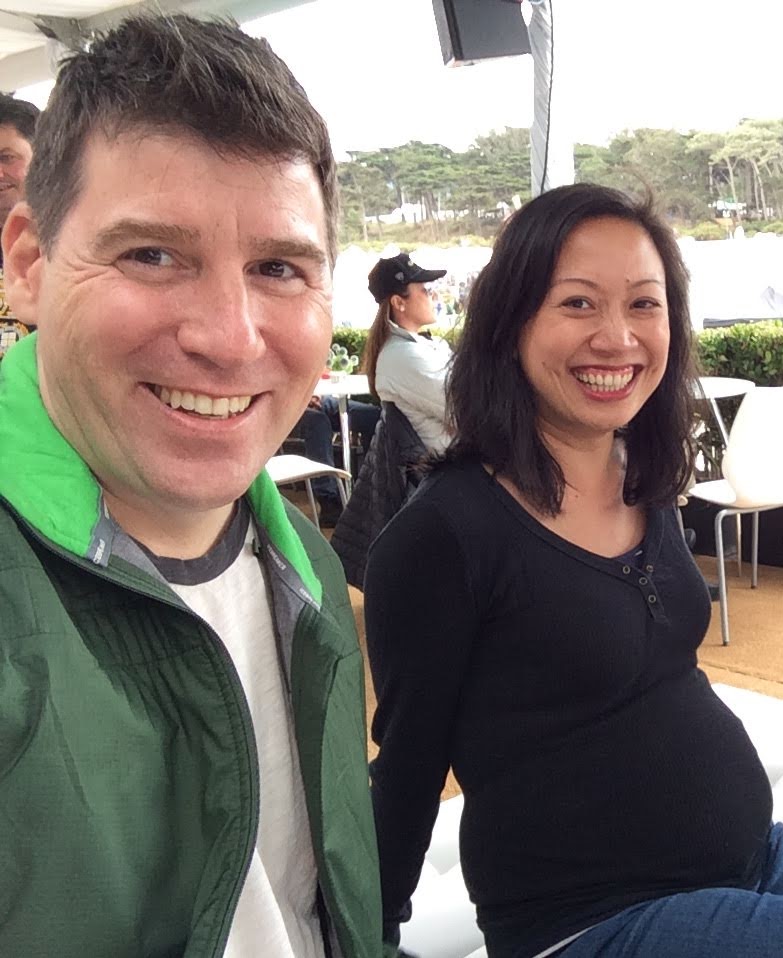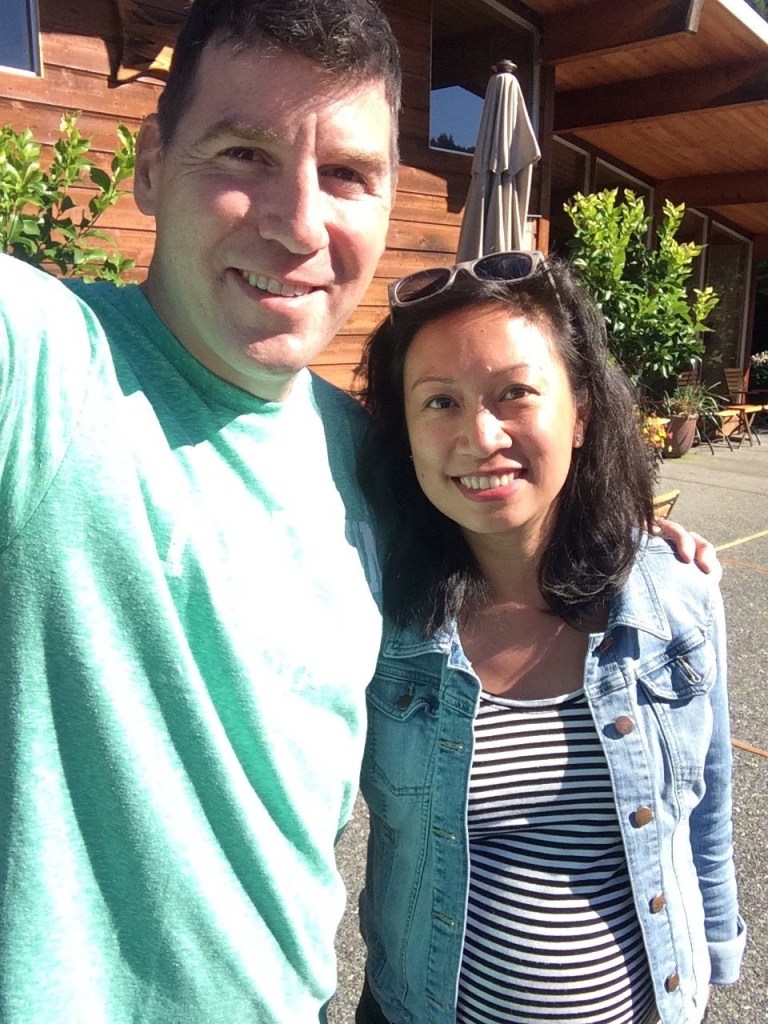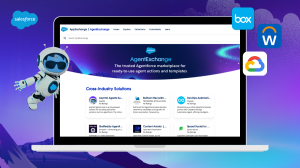Six months into the pandemic, Abby Hollingsworth had an epiphany. She was working from home and chasing her 5-year-old daughter around the house, while also checking on her parents, both of whom were sick with COVID. In between meetings and nap time, she got a call from the hospital worth celebrating — her mother had recovered and was ready to go home. But instead of feeling pure joy or relief, Hollingsworth was stressed.
“As soon as my mother tested negative, the hospital said she had to leave immediately because they needed that bed back,” recalled Hollingsworth, Salesforce’s Vice President of Global Benefits. “I’m the do-it-all kind of person who tries not to deprioritize anything. That was my ‘holy moly’ moment. I need to stop everything I’m doing. That’s my mom.”
I need to stop everything I’m doing. That’s my mom.
Abby Hollingsworth, Vp, Global Benefits, Salesforce
That was Abby Hollingsworth’s work-life experience during COVID — and she’s not alone.
The pandemic’s impact on women in the workforce
The pandemic has been devastating to women around the world. Whether balancing career with family, dealing with the burden and stigma of work pressure, or navigating the obstacles of hybrid work among myriad other challenges — millions of women have left the workforce during COVID-19, an impact of $800 billion in global income.
Organizations have felt this acutely, seeing a disproportionate number of women departing jobs. Many, though, are working to find solutions.
As a leader in Salesforce’s Employee Success organization, Hollingsworth is responsible for providing services and support to encourage the wellbeing of 74,000 global employees. When it comes to these benefits, Hollingsworth doesn’t just talk the talk, she walks it too.
“In my role, I have this really amazing privilege to help create and develop programs that can support women,” Hollingsworth continued, “and during the pandemic, I really utilized the benefit programs that ironically, I’ve been the one to roll out.”
Salesforce colleagues, tech, and benefits provide support during life’s challenging moments
When her mother left the hospital, Hollingsworth needed to find her mom a skilled nursing facility immediately. But finding the right facility takes time — time she didn’t have, especially with a neverending to-do list of work and personal items. She needed flexibility, and her Salesforce colleagues stepped up to the plate.
Hollingsworth remembers how significant that support was, recounting the words of her direct manager: “Stop what you’re doing at work, and make sure that your mom is where she needs to be.”
Hollingsworth leaned into asynchronous communication — addressing work issues at times that were more convenient for her, freeing her to speak with care facilities during their operating hours. On any given day, she may had have to pause work to talk to the hospital, get updates on her mother’s condition, help make decisions and also talk to her dad to help him understand what was happening and coordinate decisions.
Said Hollingsworth, “I leaned heavily on my team to drive work items forward, and got help from my manager so that he could lead as needed, which freed up time for me to focus on coordinating and understanding the situation.”
In addition to help from her team, Hollingsworth used Salesforce-offered benefits that not only helped provide progress updates on her mother’s status when Hollingsworth couldn’t be there herself, but also helped find a quality environment for her mom to heal.

How Salesforce supports personal journeys
Pandemic-born ways of working turned into long-term strategies for many organizations, including Salesforce. In February 2021, Salesforce rolled out flex team agreements as part of its Success from Anywhere approach, empowering teams to choose when, where and how they work.
Future Forum data shows that having flexibility in both where and when you work is particularly valued by women and working moms.
While flexibility allowed many working women, and Hollinsworth, to better address her family’s needs, that doesn’t mean the stress was gone. Studies report that the number of adults reporting anxiety symptoms increased nearly 30% from 2019 to 2021 due to the pandemic, and women specifically became three times more likely than men to report them.
“It’s like we have a never-ending series of to-do lists,” described Hollingsworth. “As soon as you check something off of one list, two more items get added on the others that’s hard to keep up.”
To better manage her stress and anxiety, Hollingsworth did something that went against her do-it-all mentality. She reached out for help, turning to the Salesforce Mental Health Toolkit to find therapy resources and counselors.
“Prior to the pandemic, I thought success meant being at the same level all the time in every single bucket that I’m in. I’ve reframed that. I now remind myself that it’s OK to be a perfectionist, but it’s also OK to lean on people for support.”
Prior to the pandemic, I thought success meant being at the same level all the time in every single bucket that I’m in. I’ve reframed that.
Abby Hollingsworth, Vp, Global Benefits, Salesforce
Hollingsworth also leaned on mental reinforcements from a Salesforce-offered parenting programs which helped answer parenting questions — including the best ways to potty train her daughter.
Salesforce works to close the gender career gap
According to an International Women’s Day survey, fewer than one-third of women are “very satisfied” with the amount of career growth available to them at their current job. Twenty-two percent of women, both with AND without children, have experienced a setback in their career advancement over the past 12 months.
This disenfranchisement isn’t something new — women have always faced disproportionate challenges in the workplace across compensation, promotion, and representation. As a result, many women have been hesitant about taking leave, but nearly 90% of career re-entry candidates are female.
Career breaks, which generally last anywhere between one and twenty years, aren’t limited to child or elderly care, but include situations ranging from health recovery or even expat experiences and sabbaticals.
For women who want to have a family, Salesforce offers fertility benefits and a paid six month leave policy — a program that Hollingsworth helped expand upon from its previous three month offering. Excited about the impact this would have for her and future employees, Hollingsworth wanted to make the most of her time.
“Not only was I going to lead by example to help normalize this need for time, but I was also fully supported to do so by my team and leadership. When our beautiful daughter, Lena, was born, I took the full six months. I can’t imagine how someone could manage without that amount of time to bond and grow as a new parent, yet many working professionals only get weeks.”
Hollingsworth didn’t just normalize using leave — she showcased the full realm of possibility for employees who are considering it, because she was actually promoted while on that six month parental leave.
“I recognize that there is fear when people take time off,” Hollingsworth said. “At Salesforce, we have the ability and structure in place, where I hope people don’t feel forgotten while they’re on leave. That time is for themselves. By taking my full leave, I hope that enabled many of our employees to recognize and understand this is a real benefit, not just on paper.”
By taking my full leave, I hope that enabled many of our employees to recognize and understand this is a real benefit, not just on paper.
Abby Hollingsworth, Vp, Global Benefits, Salesforce
Salesforce enables free digital learning and networking to advance career trajectories
In addition to global benefits, Salesforce also helps women’s career development. According to the latest Digital Skills Index, 75% of women across the globe don’t feel equipped with the types of digital skills businesses need now or in the future, and only 27% are actively involved in learning and training programs today.
Salesforce’s free online learning platform, Trailhead, helps address those concerns by offering courses on the digital skills needed to succeed in this work-from-anywhere world, for employees and working professionals alike; and workforce development programs including Salesforce Talent Alliance, Trailblazer Connect, and Pathfinder help women connect to training, mentorship and career opportunities.
How Salesforce supports one another
Whether it’s childcare or career growth – or even therapy to manage the stress of the former two – Salesforce has built a benefits and training program to help provide some peace of mind in a world that slows down for no one.
“I firmly believe that we had to prioritize creating a safe environment for people to ask for help, and surfacing the issues felt by women and employees during the pandemic,” Hollingsworth said.
Hollingsworth is now much more comfortable asking for help, and her life is better for it. Her colleagues feel similarly.
“I really feel like there is a world where I can balance both home and work life,” she said. “We saw almost a 9% increase in employee satisfaction around wellbeing benefits from the previous benefits survey, so we’re really proud of the progress that we’ve made. And we’re not done.”
For more on Salesforce’s approach to cultivating company culture, read this story.





















